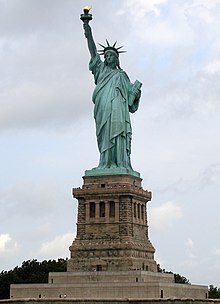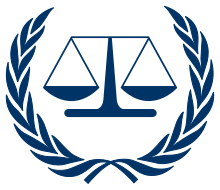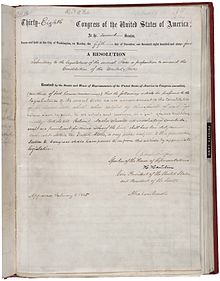Forced pregnancy

Forced pregnancy is the practice of forcing someone to become or remain pregnant against their will; often as part of a forced marriage, breeding slaves, or military action. Forced pregnancy is a form of reproductive coercion.
Quotes
[edit]
The U.N. Human Rights Council has recognized that denial of abortion in cases of rape inflicts such psychological and physical trauma that it can amount to torture under international law. ~ Equalitynow.org



- Enforced childbirth is slavery[.]
- Margaret Atwood, "‘Enforced childbirth is slavery’: Margaret Atwood on the right to abortion", The Guardian, (7 May 2022); edited extract from Burning Questions by Margaret Atwood, published by Chatto & Windus
- The baby is a gift, given by life itself. But to be a gift a thing must be freely given and freely received. A gift can also be rejected. A gift that cannot be rejected is not a gift, but a symptom of tyranny.
- Margaret Atwood, "‘Enforced childbirth is slavery’: Margaret Atwood on the right to abortion", The Guardian, (7 May 2022); edited extract from Burning Questions by Margaret Atwood, published by Chatto & Windus
- Laws that prevent people from making their own decisions about whether to continue a pregnancy or have an abortion amount to forced pregnancy. Outright abortion bans aren’t the only way to force a pregnancy — even when Roe v. Wade was still technically intact, laws pushed abortion out of reach across the country. Long-term consequences include:
* Long-lasting health consequences as well as life-threatening complications like eclampsia (which can lead to seizures or comas) and postpartum hemorrhage
* Increased levels of poverty for people turned away from the abortion care they need and an inability to cover basic needs like food, housing, and transportation
* Ongoing contact with and violence from an abusive partner
Policies that force people to remain pregnant and give birth are unconscionable, cruel, and dangerous. Lives and futures are at stake.- American Civil Liberties Union, "End Forced Pregnancy", (Last updated on September 20, 2022)
- Our fight will continue until we can put an end to laws that force people to carry pregnancies against their will and deny them the fundamental right to control their own bodies.
- American Civil Liberties Union, "End Forced Pregnancy", (Last updated on September 20, 2022)
- In 1993 the United Nations (UN) Commission on Human Rights (replaced in 2006 by the UN Human Rights Council) declared systematic rape and military sexual slavery to be crimes against humanity punishable as violations of women’s human rights. In 1995 the UN’s Fourth World Conference on Women specified that rape by armed groups during wartime is a war crime. The jurisdiction of the international tribunals established to prosecute crimes committed in the conflicts in the former Yugoslavia and Rwanda both included rape, making these tribunals among the first international bodies to prosecute sexual violence as a war crime. In a landmark case in 1998, the Rwandan tribunal ruled that “rape and sexual violence constitute genocide.” The International Criminal Court, established in 1998, subsequently was granted jurisdiction over a range of women’s issues, including rape and forced pregnancy. In a resolution adopted in 2008 the UN Security Council affirmed that “rape and other forms of sexual violence can constitute war crimes, crimes against humanity or a constitutive act with respect to genocide.”
- Anne L. Barstow, “Rape-crime”, Encyclopedia Britannica
- The women who bear children and the medical experts who assist them testify that pregnancy and childbearing are indeed labor. The fact that many women enter into such labor voluntarily and joyfully does not alter the fact that other women, under other circumstances, find childbearing too arduous, become pregnant through no choice of their own, and are then forced to complete the pregnancy to term by compulsion of state laws prohibiting voluntary abortion. It is the purpose of the Thirteenth Amendment to prohibit a relationship in which one person or entity limits the freedom of another person. In the absence of a compelling state interest or due conviction for a crime, the state’s forcing the pregnant woman through unwanted pregnancy to full term is a denial of her Thirteenth Amendment right to be free from “a condition of enforced compulsory service of one to another.” This is the very essence of involuntary servitude in which the personal service of one person is “disposed of or coerced for another’s benefit.”
- Amicus Curiae Brief in Support of Jane Roe California Committee to Legalize Abortion; South Bay Chapter of the National Organization for Women; Zero Population Growth, Inc.; Cheriel Moench Jensen; and Lynette Perkes; filed by Joan K. Bradford, Esq.; as quoted in “Before Roe v. Wade” by Linda Greenhouse and Reva B. Siegel, Yale Law School, 2012, pp.344-345
- Forced pregnancy is defined as when a woman or girl becomes pregnant without having sought or desired it, and abortion is denied, hindered, delayed or made difficult.
Some of these pregnancies are caused by a lack of sexual education, access to contraception, or mistake, but many of them, especially among young girls, are caused by sexual violence, often perpetrated by relatives or acquaintances.
When abortion is illegal or inaccessible, often young girls’ lives are at risk through clandestine abortions or having to give birth. Being so young, most are neither physically nor emotionally mature enough to carry a pregnancy to full term, give birth, or become mothers. And yet, without access to safe and legal abortion, they are forced to do so, compounding the harm from the sexual violence they’ve already suffered.- “Forced Pregnancy”, Equalitynow.org
- The Commission on the Elimination of Discrimination Against Women Committee and the Committee on the Rights of the Child has cataloged forced pregnancy as a harmful practice that gravely affects the rights of girls.
The U.N. Human Rights Council has recognized that denial of abortion in cases of rape inflicts such psychological and physical trauma that it can amount to torture under international law.- “Forced Pregnancy”, Equalitynow.org
- Black women’s sexual subordination and forced pregnancies were foundational to slavery. If cotton was euphemistically king, Black women’s wealth-maximizing forced reproduction was queen.
Ending the forced sexual and reproductive servitude of Black girls and women was a critical part of the passage of the 13th and 14th Amendments. The overturning of Roe v. Wade reveals the Supreme Court’s neglectful reading of the amendments that abolished slavery and guaranteed all people equal protection under the law. It means the erasure of Black women from the Constitution.
Mandated, forced or compulsory pregnancy contravenes enumerated rights in the Constitution, namely the 13th Amendment’s prohibition against involuntary servitude and protection of bodily autonomy, as well as the 14th Amendment’s defense of privacy and freedom.
This Supreme Court demonstrates a selective and opportunistic interpretation of the Constitution and legal history, which ignores the intent of the 13th and 14th Amendments, especially as related to Black women’s bodily autonomy, liberty and privacy which extended beyond freeing them from labor in cotton fields to shielding them from rape and forced reproduction. The horrors inflicted on Black women during slavery, especially sexual violations and forced pregnancies, have been all but wiped from cultural and legal memory. Ultimately, this failure disserves all women.- Michelle Goodwin, “No, Justice Alito, Reproductive Justice Is in the Constitution”, The New York Times, (June 26, 2022)
- The fall out is also reaching the children of the kidnapped brides. The Duke University study found that ethnic babies in Kyrgyzstan are smaller than average.
Smaller birth weights have been linked to a higher risk of disease.
It was unclear why these babies were smaller, but it was likely due to the psychological trauma suffered by the mother from being in a forced marriage, said economics professor Charles Becker, who co-authored the Duke University study.- "Footage of 'bride kidnappings' makes for truly disturbing viewing". NewsComAu. 2017-11-17.
- Kyrgyzstan has the highest maternal mortality rate in Central Asia — the large number of underage girls giving birth following forced marriage is one factor in this.
- "Footage of 'bride kidnappings' makes for truly disturbing viewing". NewsComAu. 2017-11-17.
- I am heartbroken that we may now be destined to learn the painful lessons of the time before Roe was made law of the land — a time when women risked losing their lives getting illegal abortions. A time when the government denied women control over their reproductive functions, forced them to move forward with pregnancies they didn’t want, and then abandoned them once their babies were born.
- Michelle Obama as quoted by Joseph Choi, "Michelle Obama ‘heartbroken’ over Supreme Court’s ‘horrifying’ abortion ruling", The Hill, (06/24/22)
- Allowing a state to take control of a woman's body and force her to undergo the physical demands, risks, and life-altering consequences of pregnancy is a fundamental deprivation of her liberty. And, once the Court recognizes that that liberty interest deserves heightened protection, it does need to draw a workable line, and viability is a line that logically balances the interests at stake.
- Julie Rikelman, Argument transcript for No. 19-1392, December 1, 2021, Heritage Reporting Corporation, p.75
- The Constitution provides a guarantee of liberty. The Court has interpreted that liberty to include the ability to make decisions related to child – childbearing, marriage, and family. Women have an equal right to liberty under the Constitution, Your Honor, and if they're not able to make this decision, if states can take control of women's bodies and force them to endure months of pregnancy and childbirth, then they will never have equal status under the Constitution.
- Julie Rikelman, Argument transcript for No. 19-1392, December 1, 2021, Heritage Reporting Corporation, p.78
- "Forced pregnancy" means the unlawful confinement of a woman forcibly made pregnant, with the intent of affecting the ethnic composition of any population or carrying out other grave violations of international law. This definition shall not in any way be interpreted as affecting national laws relating to pregnancy;
- Article 7, 2 (f) "Rome Statute of the International Criminal Court". (17 July 1998). legal.un.org.
- Committing rape, sexual slavery, enforced prostitution, forced pregnancy, as defined in article 7, paragraph 2 (f), enforced sterilization, or any other form of sexual violence also constituting a grave breach of the Geneva Conventions;
- Article 8, 2 (b) (xxii), "Rome Statute of the International Criminal Court". (17 July 1998). legal.un.org.
“BRIEF OF OVER 500 WOMEN ATHLETES, THE WOMEN’S NATIONAL BASKETBALL PLAYERS ASSOCIATION, THE NATIONAL WOMEN’S SOCCER LEAGUE PLAYERS ASSOCIATION, AND ATHLETES FOR IMPACT WHO HAVE EXERCISED, RELIED ON, OR SUPPORT THE CONSTITUTIONAL RIGHT TO ABORTION AS AMICI CURIAE IN SUPPORT OF RESPONDENTS”
[edit]David A. Barrett, Joanna Wright, Lauren Goldman, Lindsey Ruff, Boies SchIller Flexner LLP; (September 20, 2021), THOMAS E. DOBBS, MD., M.P.H., STATE HEALTH OFFICER OF THE MISSISSIPPI DEPARTMENT OF HEALTH, et. al., Petitioners, v. JACKSON WOMEN’S HEALTH ORGANIZATION, et. al., “BRIEF OF OVER 500 WOMEN ATHLETES, THE WOMEN’S NATIONAL BASKETBALL PLAYERS ASSOCIATION, THE NATIONAL WOMEN’S SOCCER LEAGUE PLAYERS ASSOCIATION, AND ATHLETES FOR IMPACT WHO HAVE EXERCISED, RELIED ON, OR SUPPORT THE CONSTITUTIONAL RIGHT TO ABORTION AS AMICI CURIAE IN SUPPORT OF RESPONDENTS”


- Athletics “have become part of the fabric of America.” Nat’l Collegiate Athletic Ass’n v. Alston, 141 S. Ct. 2141, 2168 (2021) (Kavanagh, J., concurring). Women’s ability to “participate equally in the economic and social life of the Nation”—including through high school, collegiate, and professional sports—“has been facilitated by their ability to control their reproductive lives.” Casey, 505 U.S. at 856 (plurality opinion). Absent the right to access safe and legal abortion care, and the ability of “the woman to retain the ultimate control over her destiny and her body,” id. at 869, women’s sports would not be the enormous success they are today. Among other reasons, women’s ability to participate and excel in athletics would decline, severely impairing the vitality of sports in the United States. Further, women and girls would be deprived of the multitude of collateral benefits that result from athletic participation, including greater educational success, career advancement, enhanced self-esteem, and improved health.
Athletic prowess depends on bodily integrity. The physical body is a critical tool for athletes, and its condition determines elite athletes’ futures and livelihoods. High school and collegiate athletes use their bodies not only to compete, but also to secure higher education through recruiting opportunities and athletic scholarships that may be otherwise unobtainable. Professional athletes use their bodies for their livelihoods, including to access lucrative sponsorships and advertising opportunities. Amici depend on the right to control their bodies and reproductive lives in order to reach their athletic potential. Indeed, Amici are united in their belief that the physical tolls of forced pregnancy and childbirth would undermine athletes’ ability to actualize their full human potential.- pp.3-4
- All athletes—men and women—have a narrow window of time to achieve their greatest athletic potential. This reality is magnified for women athletes for whom childbearing age coincides with their competitive peak in athletics. If the State compelled women athletes to carry pregnancies to term and give birth, it could derail women’s athletic careers, academic futures, and economic livelihoods at a large scale. Such a fundamental restriction on bodily integrity and human autonomy would never be imposed on a male athlete, though he would be equally responsible for a pregnancy.
- p.7
- The demands of athletics and pregnancy are physically and emotionally intense. If women were to lose the agency to make individual, personal choices as to if, when, and how to balance these competing demands, many will be forced to sacrifice their athletic aspirations and pursuits. Compelled pregnancies would allow the State to “conscript[] women’s bodies into its service, forc[e] women to continue their pregnancies, suffer the pains of childbirth, and in most instances, provide years of maternal care.” Casey, 505 U.S. at 928 (Blackmun, J., concurring). Often this will be at the expense of women’s athletic careers, as well as their educational goals and professional livelihoods. Such “governmental intrusion” is “unique to the [woman’s] condition,” id. at 851–52, as only women’s bodies are essential for both athletic participation and pregnancy and childbirth. Depriving women of the opportunity to make autonomous choices about how to use their bodies—a matter “of the highest privacy and the most personal nature,” id. at 915 (Stevens, J., concurring)—would gravely harm equality in athletics, and elsewhere.
- pp.15-16
- The decision to become pregnant, thereby risking long-term health and career consequences, involves “the most intimate and personal choices a person may make in a lifetime, choices central to personal dignity and autonomy.” Casey, 505 U.S. at 851. The decision belongs to the individual to make. Forcing athletes to bear the unknowable risk of when and whether their bodies will recover from pregnancy and childbirth would violate their most fundamental liberties.
- p.21
- If forced to carry pregnancies to term, many women would have no choice but to sacrifice playing their sport—a sacrifice not required of their male counterparts, despite their equal role in engendering a pregnancy. Absent the right to access safe and legal abortion care, women’s ability to participate and excel in athletics would inevitably decline and the movement toward gender equality in sports would reverse course.
- p.28
- The right to bodily integrity and decisional autonomy is of heightened concern for women athletes who become pregnant from sexual violence. If forced to carry their rapist’s child to term, these women would not only be forced to make the same physical, emotional, and athletic sacrifices that would be required of all athletes who would have to endure compelled pregnancies, but they also would be re-traumatized by the repeated deprivation of control over their bodies—not only by their assailant, but also by the government. This intrusion can be acutely devastating for an athlete, given that control over her body is inextricably linked to her identity, career, and educational pursuits.
The prospect of forced childbearing is particularly poignant for collegiate athletes, given that nearly one in five women are sexually assaulted during their time in college.- pp.28-29
"Forced Labor: A Thirteenth Amendment Defense of Abortion" (1990)
[edit]Andrew Koppelman, "Forced Labor: A Thirteenth Amendment Defense of Abortion", Northwestern Law Review, Vol. 84 (1990)



- [F]orced pregnancy is a deprivation of individual liberty (and this is what the privacy argument stresses), but that deprivation is selectively imposed on “women”-and women are a group that has traditionally been regarded as a servant caste, whose powers (unlike those of men) are properly directed to the benefit of others rather than themselves. Compulsory motherhood deprives women of both liberty and equality.
- pp.482-483
- When women are compelled to carry and bear children, they are subjected to “involuntary servitude” in violation of the Thirteenth Amendment. Abortion prohibitions violate the amendment’s guarantee of personal liberty, because forced pregnancy and childbirth, by compelling the woman to serve the fetus, created “that control by which the personal service of one man [sic] is disposed of or coerced for another's benefit which is the essence of involuntary servitude.” Such laws violate the amendment’s guarantee of equality, because forcing women to be mothers makes them into a servant caste, a group which, by virtue of status of birth, is held subject to a special duty to serve others and not themselves.
- p.484
- Thus defined, it should be apparent that "involuntary servitude" includes coerced pregnancy. The pregnant woman may not serve at the fetus’ “command”-it is the state that, by outlawing abortion, supplies the element of coercion-but she is serving involuntarily for the fetus’ "benefit", and this is what the Court has said that the amendment forbids. If citizens may not be forced to surrender control of their persons and services, then women’s persons may not be invaded and their services may not be coerced for the benefit of fetuses. It is as simple as that. The injury inflicted on women by forced motherhood is lesser in degree than that inflicted on blacks by antebellum slavery, since it is temporary and involves less than total control over the body, but it the same “kind” of injury. When abortion is outlawed, a woman who does not want to carry her pregnancy to term must serve the fetus, and that servitude is involuntary.
Some of those to whom I have made this argument have responded less with skepticism than with horror. They consider it a libel on motherhood, which, far from being like slavery, is an exhilarating, awe-inspiring, and joyous experience. It may not be out of place, therefore, to address this concern at the outset. The objection gathers whatever force it has by focusing on the experience of women who “want” to be mothers. The thirteenth amendment, however, does not apply to them. The servitude it prohibits is “involuntary”. The distinction between wanted and unwanted pregnancy is like the difference between wanted and unwanted sex. Can rape be defended on the grounds that sex is an exhilarating, awe-inspiring, joyous experience? Do arguments that focus on the degrading and violative aspects of rape constitute a libel of sex? Plantation slavery obviously cannot be justified on the grounds that many people find gardening deeply satisfying, but this objection is really no better than that.- pp.487-488
- We fought a civil war to end slavery, and made its abolition the supreme law of the land. The central evil of slavery, as Justice Harlan observed, was that it placed one “class of human beings in practical subjection to another class.” That is precisely what a law that compels women to be mothers does. A law outlawing abortion therefore would betray one of the fundamental principles by which the American polity defines itself.
- p.517
- Were fetuses to be given the full legal protection accorded to born persons, the resemblance between forced pregnancy and slavery might eventually become more apparent. In recent decades, medical science has found that a broad range of activities by pregnant women can have a negative effect of the fetus, “including failing to eat properly, using prescription, nonprescription and illegal drugs, smoking, drinking alcohol, exposing herself to infectious disease or to workplace hazards, engaging in immoderate exercise or sexual intercourse, residing at high altitudes for prolonged periods, or using a general anesthetic or drugs to induce rapid labor during delivery.” Note, “The Creation of Fetal Rights: conflicts with Women’s Constitutional Rights to Liberty, Privacy, and equal Protection, 95 Yale L..H. 599, 606-07 (1986) (footnotes omitted). There are two ways of using this information: by communicating it to women and trusting them to use it appropriately, or by regulating pregnant women’s behavior directly. The former approach only makes sense if pregnant women can be presumed to care about the welfare of their fetuses, and this presumption will be implausible if one and a half million women a year (that is, between quarter and a third of pregnant women) are pregnant against their wills. See Tierze, Forrest & Henshaw, supra note 130, at 475-76. The latter approach has already, in some cases,been carried to its logical conclusion of imprisoning the woman for the duration of her pregnancy. See e.g., 1989 Minn. Sess. Law Serv. P 290, Part. 5 (West) (statute authorizing involuntary civil commitment of women who abuse drugs during pregnancy). Recognition of fetal personhood might entail internment of pregnant women on a much larger scale.
- Footnote 159, pp.517-518
- [F]orced pregnancy is different form the degrading, ill-paid jobs that the poor must do, because they are at least able to change employers. The pregnant woman, on the other hand, cannot exchange her burden for any other. Moreover, the Court has held that a state may not impose costs that make poverty an absolute barrier to the exercise of a constitutional right. Boddie v. Connecticut invalidated state rules that barred access to divorce for those who could not afford to pay filing fees. “[M]arriage involves interests of basic importance in our society,” the Court observed. Because “[t]he requirement that these appellants resort to the judicial process is entirely a state-created matter,” the Court concluded that “a State may not, consistent with the obligations imposed on it by the Due Process Clause of the Fourteenth Amendment, preempt the right to dissolve this legal relationship without affording all citizens access to the means it has prescribed for doing so.” Since a tax on abortions would equally be “entirely a state-created matter,” a state could not demand such a tax of a woman who is too poor to pay it.
- pp.531-532
- [A] requirement that abortions be performed in hospitals may “force women to travel to find available facilities, resulting in both financial expense and additional health risk,” and thereby may “significantly limit a woman’s ability to obtain an abortion” by “impos[ing] heavy, and unnecessary, burden on women’s access to a relatively inexpensive, otherwise accessible, and safe abortion procedure.” As a consequence, some women will be unable to get abortions at all. What the state cannot do to all women, it cannot do to poor women. If government may not increase the cost of abortion directly, it may not do so indirectly-not, at least, without compensating those whom its action would otherwise render unable to afford abortions.
- p.532
- [S]ince undesired pregnancy creates an involuntary servitude, the state must provide to those who desire it the means to terminate such servitude.
- p.532

